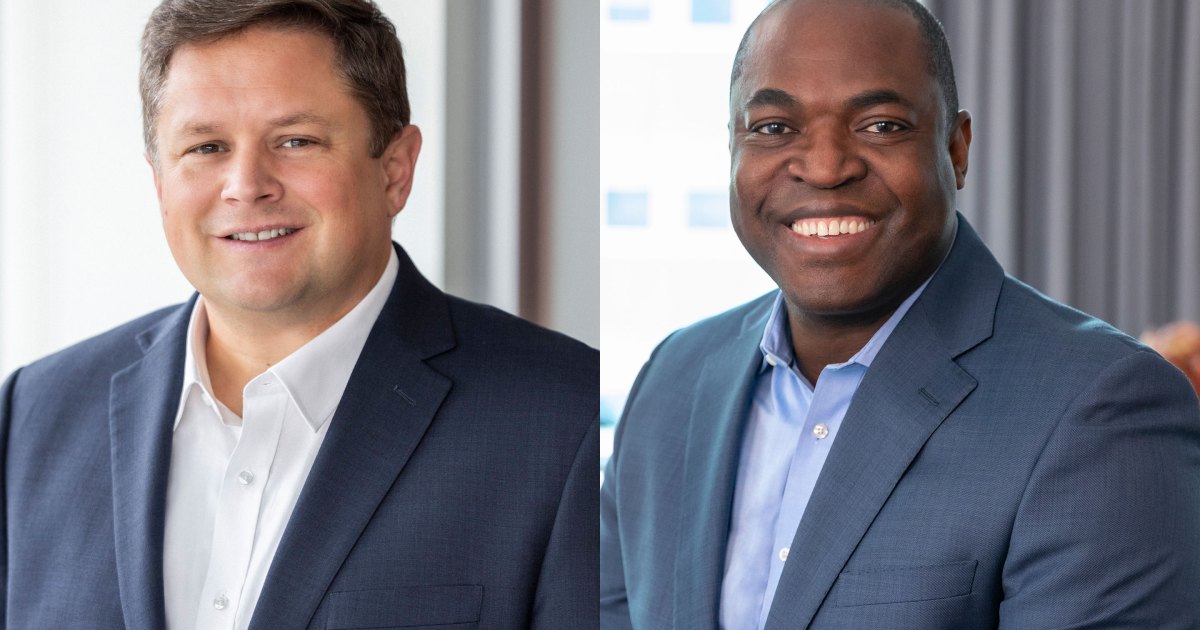Why CIOs and CFOs are becoming ‘attached at the hip’ as businesses make big AI investments

When Rani Johnson joined Workday as chief information officer in March 2023, her appointment happened to coincide with some monumental generative artificial intelligence milestones, including the debut of Anthropic’s Claude and the rollout of OpenAI’s GPT-4.
Amid all the buzzy attention on generative AI and the hunt to produce both top- and bottom-line gains from the deployment of these fast-developing tools, Workday wanted to be thoughtful about how it would budget the business software company’s AI investments. A close partnership was forged between IT and finance, the latter led by Chief Financial Officer Zane Rowe, who joined Workday just three months after Johnson.
“We created a framework for the governance to ensure that any material AI investments had a review process,” says Johnson.
This process includes a monthly IT-finance meeting where the teams discuss the various AI tools in the marketplace, which use cases have the highest feasibility for success, and which can produce the greatest impact to the business. Each month, Workday evaluates every generative AI use case that’s been in production for six months or longer to determine if these investments are delivering on key performance indicators, which may include productivity or revenue generation.
On a bimonthly basis, the company’s broader executive leadership team meets to align on Workday’s overall AI strategy. In those sessions, Johnson shares updates on the future generative AI roadmap and what benefits are expected to be achieved when making those investments. That transparency ensures accountability for all AI bets.
Business leaders say it is critical for IT and finance to nurture a close partnership as AI becomes more expansive across their operations, especially as some studies have shown that a vast majority of AI pilots fail. Most organizations that are using generative AI today are seeing a limited return on their investments, according to research from management consulting firm McKinsey.
Workday pilots every new AI feature it may want to deploy, frequently with a very short contract.
“We do believe there’s going to be some enterprise-level consolidation over time,” explains Johnson. When looking back and assessing AI investments, the company may swap out vendors when a new tool proves to be easier to deploy at a lower cost. In one example, Workday swapped in Salesforce Agentforce to replace some third-party agents that the company had deployed from another, unnamed vendor.
“I think the finance-IT partnership is terrific in enabling us to still drive value, while we recognize that there’s not only opportunity, but the cost of not changing is significantly high as well,” says Rowe.
At Akamai Technologies, CIO Kate Prouty and CFO Ed McGowan joined the cybersecurity and cloud computing company within a year of each other more than 25 years ago. After many years as colleagues, Prouty has reported to McGowan ever since she ascended to the top IT role in 2021.
“When you have the CFO behind you, it makes life a lot easier,” says Prouty.
IT and the finance department’s procurement team are “attached at the hip,” looking closely at vendor contracts to ensure that Akamai is getting the best rates possible. Akamai’s IT team fields all inbound requests for new technology solutions across the organization, committing to responding to submissions within a day.
McGowan says leadership needs to strike a delicate balance of encouraging the use of AI tools that can help engineers code faster or make it easier for lawyers to draft legal contracts. But the company doesn’t want to see costs exploding by saying “yes” to every AI request.
“We have to make sure that we don’t get in a situation where we’re either duplicating efforts, or signing bad contracts, or just having expenses run out of control,” says McGowan.
The C-suite leaders at animal health company Zoetis have placed fewer, bigger AI bets focused on just two core parts of the business, research and development and commercialization. Six of the company’s seven AI use cases have been deemed a “success,” including one AI tool that helps sales representatives prepare more tailored business pitches for each individual livestock customer.
Zoetis acknowledges it is a bit behind on implementing more generic AI productivity tools, including those that can speed up recruitment. But the company says it’s shifting more financial resources in that direction. And it can shop around and explore off-the-shelf products sold by various AI vendors that don’t have as much differentiation as the tools that Zoetis developed for its core use cases.
“We started out being more disciplined and focused in terms of where we were pursuing gen AI and making our bets,” says Wetteny Joseph, CFO at Zoetis.
Like his peers at Workday and Akamai, Zoetis Chief Digital and Technology Officer Keith Sarbaugh says the high costs tied to compute and licensing are an ongoing concern. “In my 25 years in this type of work, I’ve never seen another technology carry post-implementation costs as high as AI,” says Sarbaugh.
He frequently fields pitches from vendors like Salesforce and SAP about their latest AI offerings, but firmly believes that the greatest value will come from tools that aren’t siloed.
“We’re always looking for those opportunities where we can integrate data and processes across platforms and sort of unlock new value that way,” says Sarbaugh.
John Kell
Send thoughts or suggestions to CIO Intelligence here.
NEWS PACKETS
Amazon Web Services stung by massive outage. Amazon’s cloud computing service experienced a major outage that disrupted an array of online services affecting major corporate clients including Starbucks, Robinhood, United Airlines, McDonald’s and even Amazon’s own services like Ring and Alexa. Amazon blamed the outage on issues related to the company’s domain name system and said the outage originated in Northern Virginia, which is the biggest and oldest cloud hub in the country, according to the Associated Press. The AWS outage began Monday morning, with all services returning to normal operations by 6 p.m. Eastern. DownDetector, which tracks disruptions to internet services, said in a Facebook post it had received over 11 million user reports of problems at more than 2,500 companies.
OpenAI hires ex-bankers to develop AI tools that can perform work now done by junior staff. Bloomberg reports that OpenAI has hired more than 100 former investment bankers from Morgan Stanley, Goldman Sachs, and other financial giants, staff that’s been brought on board to help train financial models that can replace entry-level tasks performed by younger bankers. The project, called Mercury, pays participants to write prompts and build financial models for transaction-related tasks, including initial public offerings and restructuring. Bloomberg reports that Mercury is an example of OpenAI CEO Sam Altman’s bid to make AI technology more useful to specific industries, like finance in this case, as well as legal and consulting.
Anthropic debuts Claude Life Sciences, brings Claude Code to the web. OpenAI’s rival Anthropic has formally announced new technology offerings including the debut of Claude Life Sciences, which is built around Anthropic’s AI models but will also support new connections to external scientific tools that are used for research and development. Anthropic says it intends for this AI integration to help researchers speed up the drug discovery process, including research, data analysis, and clinical and regulatory compliance. Separately on Monday, Anthropic announced it would bring its AI coding assistant Claude Code to the web, allowing developers to create and manage AI coding agents from their browser. Rivals like Cursor have similarly moved in this direction in recent months, with Anthropic telling TechCrunch it wants to put Claude Code everywhere to “meet developers where they are.”
ADOPTION CURVE
AI use surges among business leaders and chatbots are their go-to tool. A vast majority of business leaders (82%) report that they use generative AI tools “multiple times a day,” primarily for work-related tasks, but also for personal productivity and social media content creation, among other uses, according to a survey of 119 members of the Fortune AIQ Advisory Board.
Chatbots including ChatGPT and Gemini were by far the most-used generative AI tools (99% report regular usage), followed by image generators like Midjourney (42%), GitHub Copilot and other AI coding assistants (26%), and video generators (only 8%). The most popular work-related tasks were research (88%), drafting reports or emails (74%), and brainstorming ideas (71%).
While nine out of ten of the business leaders reported that they were either “very satisfied” or “satisfied” with these generative AI tools, there were some concerns when asked if they had encountered any output issues. The top issue was inaccurate or misleading results (39%), followed by a lack of context understanding (23%), and biased or inappropriate outputs (8%). Two out of ten reported no major issues with their generative AI usage.

Courtesy of Fortune AIQ Advisory Board
JOBS RADAR
Hiring:
– Airrosti is seeking a CTO, based in San Antonio, Texas. Posted salary range: $200K-$230K/year.
– AmeriSave Mortgage is seeking a chief AI officer, based in Colorado. Posted salary range: $300K-$1M/year.
– The Information is seeking a head of engineering, a hybrid position that’s based in New York City or San Francisco. Posted salary range: $200K-$250K/year.
– Corpay is seeking a VP of technology, based in Sacramento, California. Posted salary range: $222.6K-$260K/year.
Hired:
– Whataburger namedRohit Kapoor as EVP and chief digital and technology transformation officer, joining the fast-food operator after serving as EVP and CIO at retailer Claire’s. Kapoor also previously held senior leadership roles at restaurant giants Starbucks and Yum Brands.
– Cart.com announced the appointment of Arjun Sainath as CTO, where he will lead product and the engineering strategy for the logistics-focused e-commerce software provider. Most recently, Sainath served as VP of platform engineering at supply chain management company Blue Yonder. He also previously served as a senior director at Salesforce.
– Kikoff announcedPhilippe Clavel as CTO, joining the fintech company to steer the advancement of its AI strategy. Clavel previously served as CTO and CEO at luxury travel-tech company Scenset and as a senior director of engineering at online game platform Roblox.
– Mongoose appointedScott Johnston as CTO, joining the software developer after most recently serving as chief product officer for the civic tech nonprofit Code for America. Prior to that, Johnston spent 16 years at Google, where he helped develop key products including Google Drive, Meet, Chat, and Voice. Johnston’s arrival at Mongoose coincides with the company’s planned deep investment in agentic AI.
– Plainsight announced the appointment of Venky Renganathan as CTO, joining the startup that helps businesses convert images and videos into structured data. Renganathan previously served as VP of engineering at repair shop management software company Fullbay and held software development roles at Amazon and Amazon Web Services.
– Accruent namedAron England as chief product and technology officer, joining the software provider after most recently serving as CPTO at speech technology software company Rev. England also has more than 20 years of product and software leadership at Dell, Vrbo, and Expedia.
– AXSappointedNikhil Bobde as CTO and named Alex Hazboun to the newly created role of chief innovation officer, reporting to Bobde. Bobde joins the sports and entertainment ticketing company from online marketplace Thumbtack and held prior roles at Microsoft and Meta. Hazboun had served as CTO of AXS for nine years and previously held roles at Ticketmaster and Live Nation.





